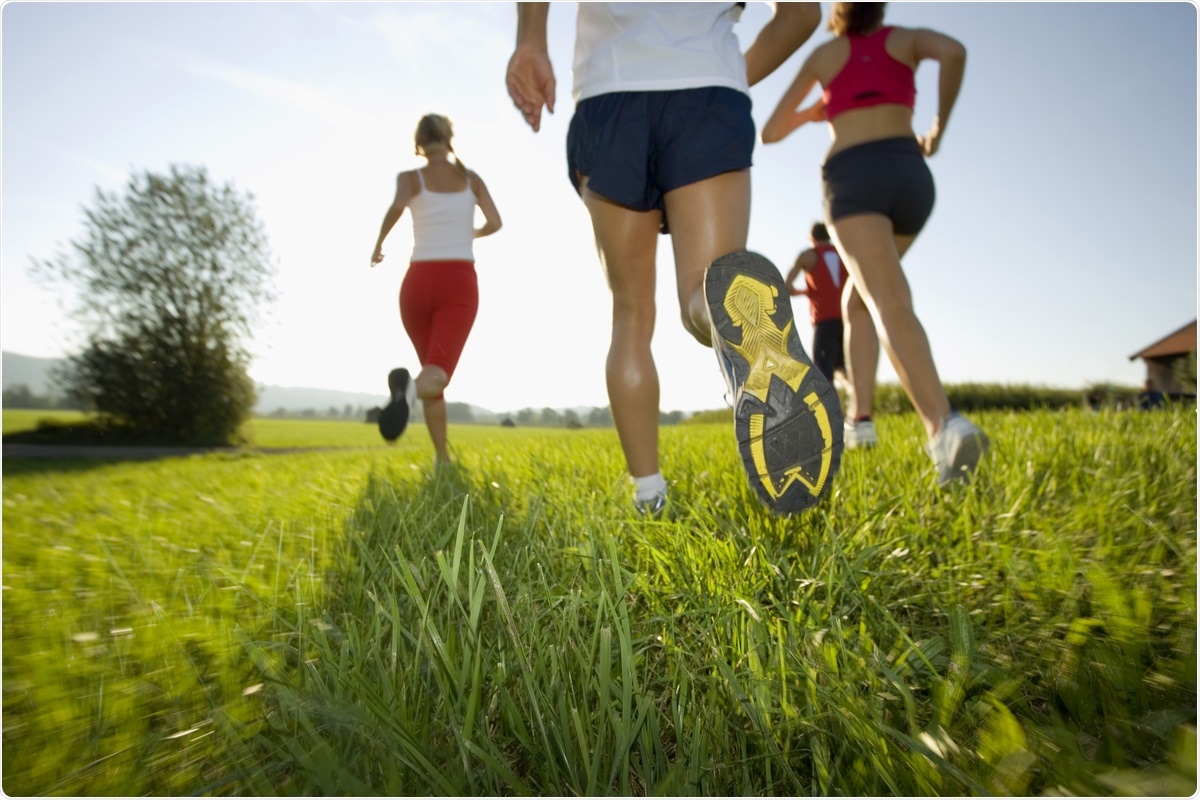Recent research identified that genes carry out a vital role in how human bodies respond to exercise. The study has also pinpointed various genes that influence the outcomes of different types of physical activity.
 Image Credit: Air Images/Shutterstock.com
Image Credit: Air Images/Shutterstock.com
The study carried out by researchers from the Cambridge Centre for Sport & Exercise Sciences at Anglia Ruskin University (ARU) in England identified that around 72% of the difference between individuals in performance outcome following a certain exercise may be because of genetic differences. The study was published in the PLoS ONE journal.
The researchers analyzed results from 3,012 adults aged between 18 and 55—who did not take part in any exercise training earlier—to ascertain how human genes impact three significant kinds of physical exercise.
Cardiovascular fitness, anaerobic power, and muscle strength are all major factors in shaping a person’s wellbeing, fitness, and quality of life. All the participants exhibited improvements after their exercise training, however to different degrees, even when they performed the same exercise training.
The researchers combined information from 24 separate kinds of research and identified that genetic differences are the reason for 72% of the variation in outcomes for individuals carrying out similar exercises designed to enhance muscle strength.
Genetic variations resulted in 44% of the differences seen after cardiovascular fitness exercises, measured through V̇O2max testing, and 10% of the differences in outcomes after exercises to enhance anaerobic power, which is vital for movement and agility. Other factors like diet and nutrition, recovery, and injuries impact the remaining variations.
Every gene has alleles, and the allele type is capable of influencing the effectiveness of the gene. The scientists suppose that the alleles are the ones that cause each individual’s body to respond differently to the same exercises.
The research identified around 13 genes and associated alleles as being responsible for the body’s reaction to muscular strength, cardiovascular fitness, and anaerobic power exercises.
The scientists propose that rather than generic exercise for all, gene testing can enable exercises to be tailored so they are much effectual for each person. Hospital patients undergoing rehabilitation to elite sportspeople can benefit from this.
We know that exercise is good for us, but we all improve at different rates, even when following identical training regimes. This means there are other factors at play.”
Henry Chung, Study Lead Author and Postgraduate Researcher, Anglia Ruskin University
“Our study found 13 genes that have a role in exercise outcomes, and we found that specific alleles contained within these genes are more suited to certain aspects of fitness. For example, with repetition exercises designed to boost muscular strength, genetic differences explained 72% of the variation in outcomes between people following the same training,” added Chung.
Because everyone’s genetic make-up is different, our bodies respond slightly differently to the same exercises. Therefore, it should be possible to improve the effectiveness of an exercise regime by identifying someone’s genotype and then tailoring a specific training program just for them.”
Henry Chung, Study Lead Author and Postgraduate Researcher, Anglia Ruskin University
Henry Chung concludes, “This could particularly benefit those who need to see improvements in a short period of time, such as hospital patients, or elite sportspeople, where marginal improvements could mean the difference between success and failure.”
Source:
Journal reference:
Chung, H. C., et al. (2021) Do exercise-associated genes explain phenotypic variance in the three components of fitness? a systematic review & meta-analysis. PLoS One. doi.org/10.1371/journal.pone.0249501.